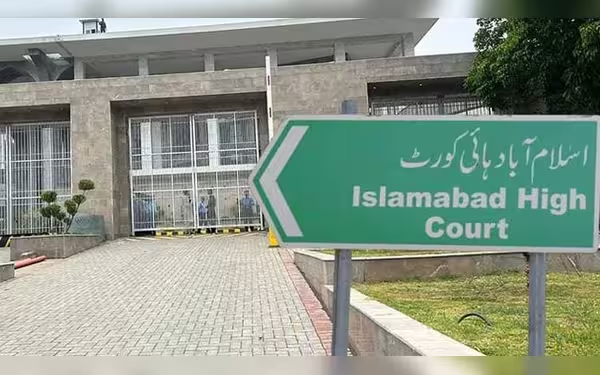Tuesday, July 2, 2024 03:39 PM
Islamabad High Court rules on missing persons compensation
- IHC directs government to compensate father of missing person
- Ruling sets precedent for holding government accountable in missing persons cases
- Verdict emphasizes importance of protecting rights of individuals and families
 Image Credits: en.dailypakistan.com.pk
Image Credits: en.dailypakistan.com.pkThe Islamabad High Court's recent ruling on a missing persons case highlights the importance of accountability, justice, and protecting the rights of individuals and their families.
The Islamabad High Court (IHC) recently made a significant ruling on May 27 regarding a case involving missing persons. In this case, the court issued a written verdict directing the federal government to provide compensation to the father of the individual who had gone missing.
Missing persons cases are a serious concern globally, where individuals disappear under mysterious circumstances, causing distress to their families and loved ones. The IHC's decision to hold the government accountable for compensating the affected families sets a crucial precedent in addressing such sensitive issues.
The court's verdict emphasizes the importance of protecting the rights of individuals and their families, ensuring that justice is served even in cases where the truth may be difficult to uncover. By ordering compensation, the IHC aims to provide some relief to the father of the missing person, acknowledging the pain and suffering he has endured.
It is essential for authorities to take proactive measures to prevent such incidents and to swiftly investigate cases of missing persons to provide closure to the families involved. The ruling by the Islamabad High Court serves as a reminder of the judiciary's role in upholding justice and safeguarding the rights of all individuals in society.
The IHC's decision to order compensation in the missing persons case reflects a step towards accountability and justice. This ruling not only addresses the specific case at hand but also sends a broader message about the importance of protecting the rights of individuals and their families in the face of adversity.













